



I’ll admit it upfront: I didn’t expect to like these glasses. Smart glasses, to me, have always felt like the Google Glass problem waiting to happen all over again. A camera strapped to your face, awkward controls, a dash of privacy anxiety — it seemed like a product category that was destined to stay niche. And when you add Meta’s name into the mix, my scepticism doubled. After all, this is the company that wants to strap a VR headset to your head, put sensors in your living room, and now — apparently — cameras on your face.
And yet, after living with the Ray-Ban Meta smart glasses, I’m conflicted. Not because they’re perfect — they’re not — but because, for the first time, I can see why these might have a future. They’ve made me pull my phone out less, take more spontaneous photos, and even swap out my earbuds once or twice. For a product I wasn’t too sure of, I am very much convinced about their — and perhaps our digital — future.
Classic Ray-Ban looks, with a twistAt first glance, these are just Ray-Bans. That’s the cleverest thing about them. You can pick between two frames: the iconic Wayfarer and the rounder Skyler. I got the Wayfarers, and unless you’re really looking, they’re indistinguishable from a normal pair of sunglasses. The design hasn’t been “techified” — no clunky arms, no sci-fi vibes, no glowing plastic. They’re light enough to wear all day, and I never felt the same weight fatigue you sometimes get with chunky headphones or VR gear.
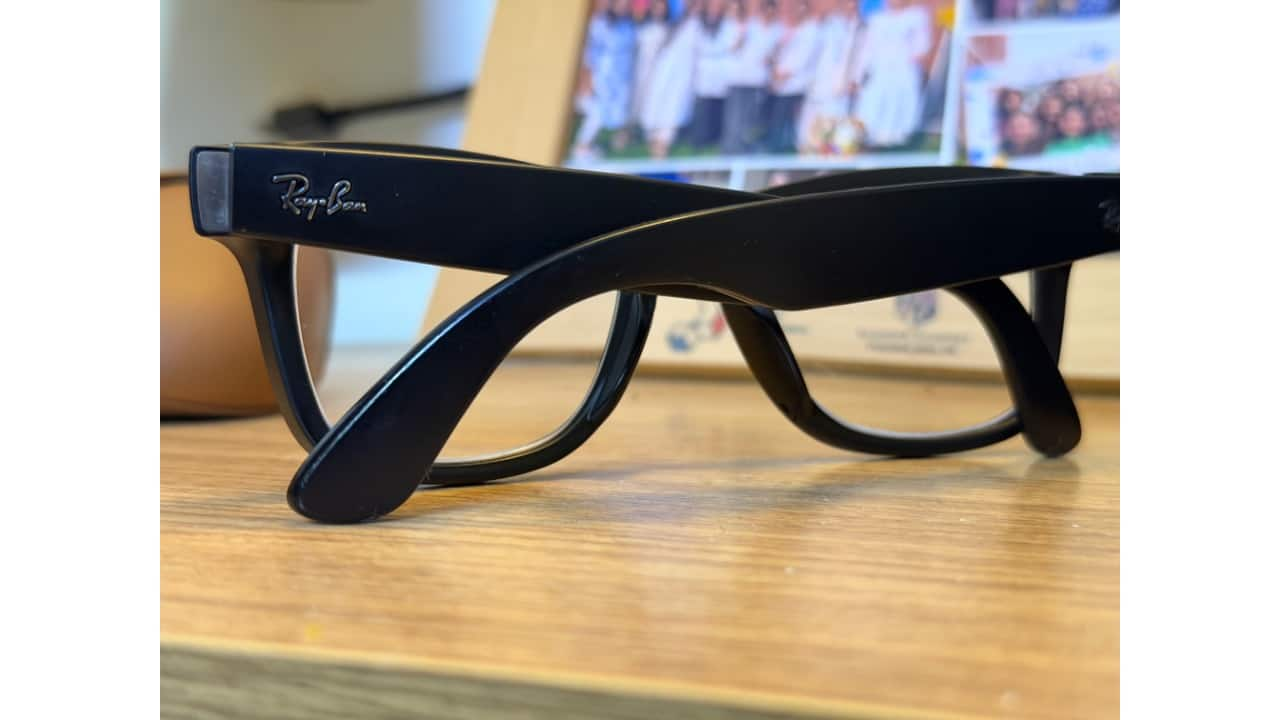
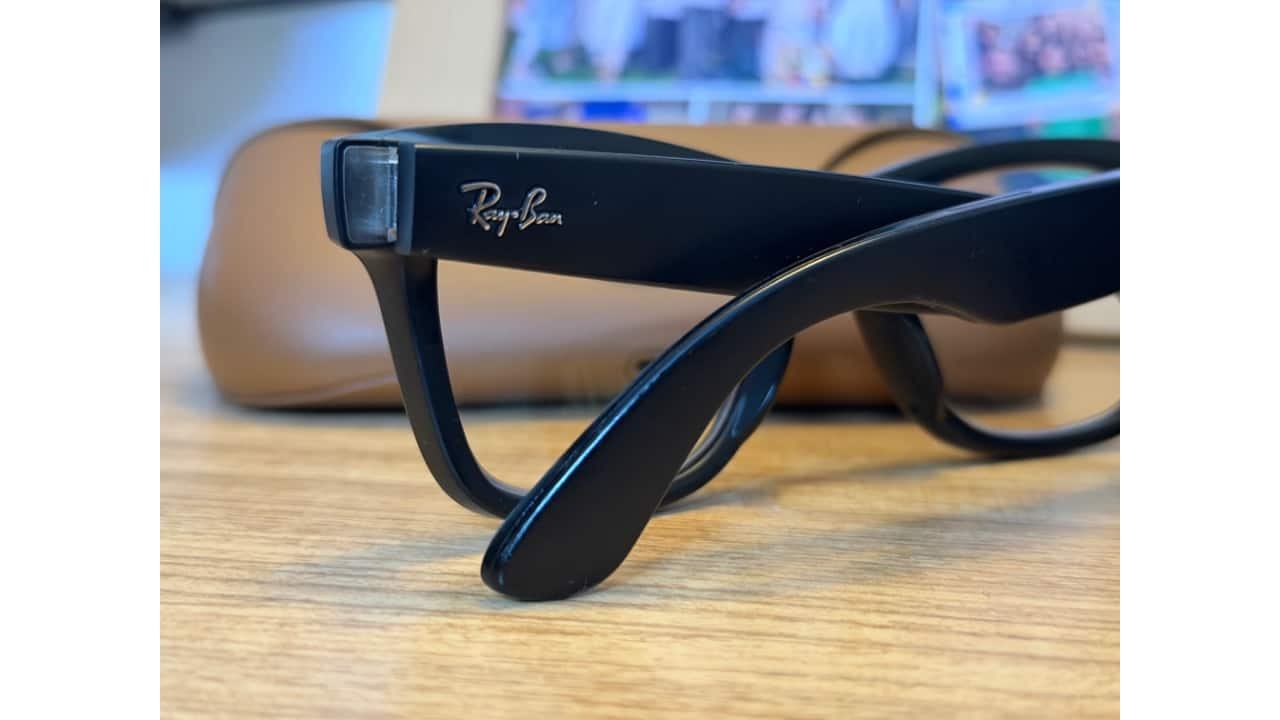

There are multiple lens options too — transitions, prescription, coloured, or polarized. Mine were prescriptions as I wanted to use them every minute I wear glasses.
Of course, the tech is there. A 12MP camera peeks out from the front, a bright LED signals when you’re recording, and the arms house touch-sensitive controls and speakers. The finish is premium enough to feel like proper eyewear, not a gimmicky gadget.
Everyday photography on your faceThe biggest surprise? The camera. At 12MP with 1080p video, I expected mediocrity — maybe novelty-level shots you’d never use beyond a WhatsApp share. But the pictures were sharper, clearer, and more vibrant than I gave them credit for. Not as detailed as my iPhone, but plenty good enough for Instagram or everyday keepsakes.
Using them changed my photography habits. Normally, capturing a moment means pulling my phone out, unlocking it, opening the camera app, and framing the shot. With these, it’s a quick tap on the temple or a “Hey Meta, take a picture.” I ended up snapping more casual, off-the-cuff shots that I’d otherwise miss. The stuff you usually never capture because it doesn’t feel worth the effort of reaching for your phone.
That’s the charm. These glasses don’t beat a phone camera — but they’re quicker, and sometimes, that’s all that matters.
Audio that works better than expectedThe other star of the show is audio. The glasses have tiny speakers near your ears, and the effect is similar to wearing earbuds in transparency mode. You can hear music, podcasts, or calls clearly, but your ears aren’t blocked. It’s surprisingly liberating to have audio while still fully hearing the world around you.
Sound quality is good, not great. There’s clarity and volume, but don’t expect chest-thumping bass. For music lovers, it won’t replace a solid pair of wireless earbuds. But for casual listening — podcasts, voice notes, phone calls — it’s brilliant. Even better, there’s minimal audio bleed unless you crank the volume up to max, so you won’t annoy people around you.

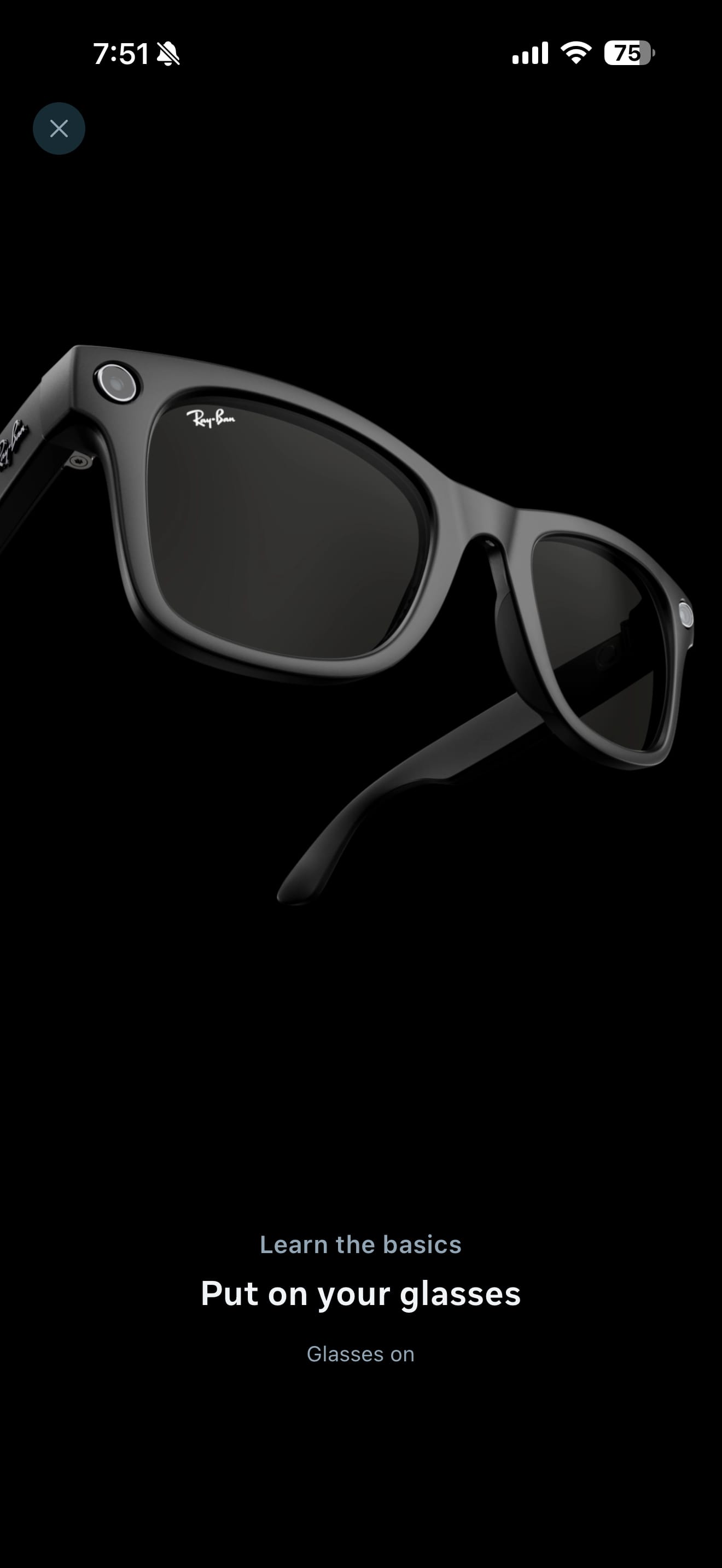
The biggest win in my book was using these glasses for phone calls. It really, really makes it very easy to just tap and take a call without even taking your phone out. Of course, I got the stares because I wasn’t wearing earbuds, I didn’t have my phone and there I was — having normal conversations in thin air.
Gestures for playback control are intuitive: tap to pause, double tap to skip, triple tap to go back. It’s basically the same learning curve as a set of wireless earbuds.
Meta’s Assistant: Surprisingly usefulNow, let’s talk about the elephant in the room: Meta. I went in with low expectations, but the built-in “Hey Meta” voice assistant works really well. Faster, in fact, than Siri on my iPhone in many cases.
You can use it to play music, send messages, answer calls, or take a photo. Even translation worked decently when I spoke to a friend who is quite fluent in Spanish.
A note: do turn of WhatsApp notifications from the Meta AI app or otherwise it will just keep buzzing non-stop. At least that’s what happened in my case.
Battery life and chargingBattery life is decent but not spectacular. On a single charge, you’ll get about four hours of mixed use — listening to music, taking photos, using the assistant. That’s fine for daily outings but won’t last a full day if you’re relying heavily on them.
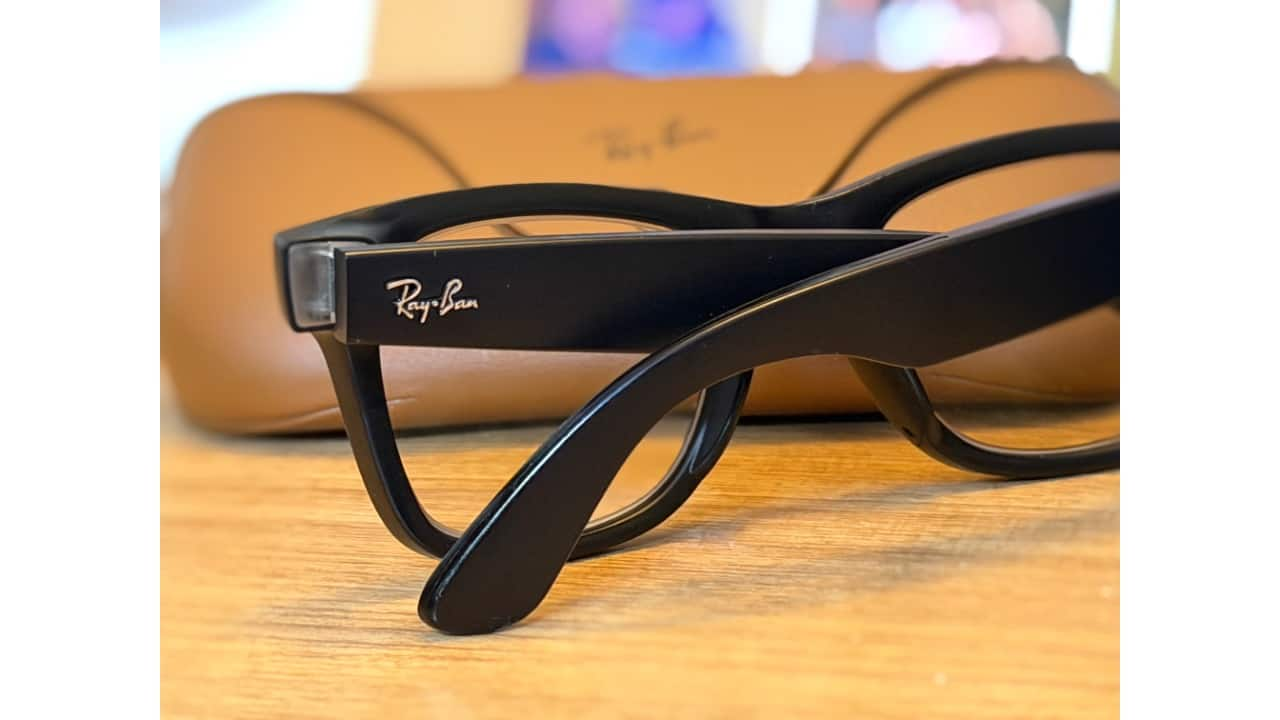

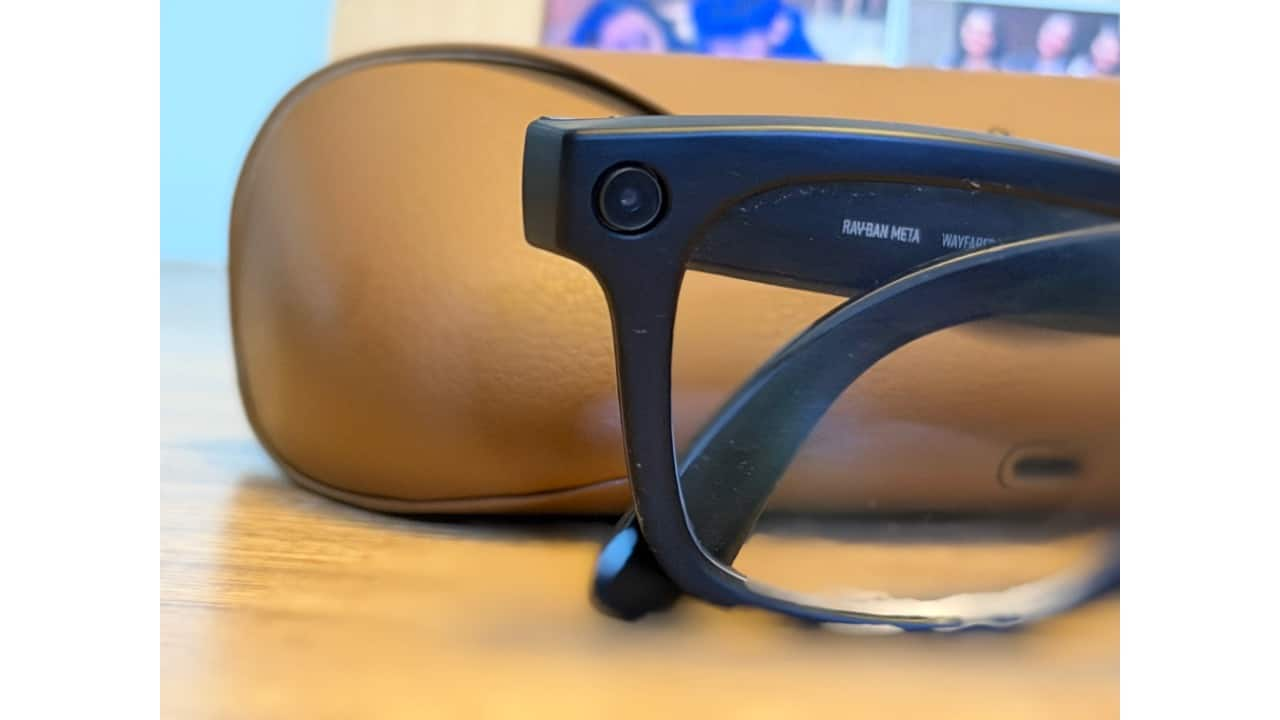
The charging case helps. It looks like a stylish Ray-Ban case, only slightly bulkier, and holds multiple charges. I found myself topping the glasses up just by putting them away between uses, and I only had to charge the case once in over a week.
It’s a smart solution, but I wouldn’t mind a bit more juice in the glasses themselves.
The privacy problemHere’s where my scepticism still holds. Wearing a camera on your face feels weird. There’s a bright LED that turns on whenever you’re recording, which is Meta’s way of saying “we’re not being sneaky,” but it’s still a camera pointing at everyone you’re looking at.
Most people didn’t notice. A few did double-takes. And yes, there were moments — walking into certain spaces, for instance — where I felt uncomfortable keeping them on. The technology is fine; it’s the social norms that haven’t caught up.
Meta’s reputation doesn’t help. Do I trust the company that monetises every ounce of data it touches with my eyewear camera and voice commands? Not really. The glasses don’t upload everything automatically — you manually transfer photos via the app — but the brand association is still uneasy.
Verdict: Surprisingly convincingSo, am I a convert? Not quite, but closer than I ever expected to be. These glasses are stylish, comfortable, and fun to use. The camera is better than it has any right to be, the audio works beautifully for everyday life, and the assistant is shockingly competent. They’ve changed how I capture little moments and helped me use my phone a bit less.
But there are caveats. Battery life is limited, audio isn’t strong enough for serious music listening, and the privacy implications will make some people (including me) uneasy.
If you’re sceptical about smart glasses, I get it — I was too. But if you’re willing to be an early adopter and mindful about when and where you wear them, the Ray-Ban Meta glasses might just surprise you. Priced around Rs 30,000, they aren't cheap but surprisingly even at that price point, there is a lot of value. And honestly, they don't seem overpriced for what they offer.
They won’t replace your phone or your earbuds yet. But for a product category that was once written off entirely, this is the first time I can say: smart glasses do have a future and will create a spectacle.

Discover the latest Business News, Sensex, and Nifty updates. Obtain Personal Finance insights, tax queries, and expert opinions on Moneycontrol or download the Moneycontrol App to stay updated!
Find the best of Al News in one place, specially curated for you every weekend.
Stay on top of the latest tech trends and biggest startup news.